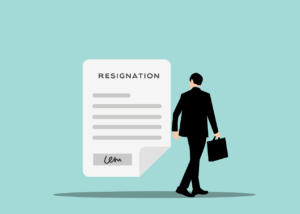So, you offered a superstar an employment opportunity and that person ultimately turned the offer down – much to your surprise. Now, you’re wondering why this happened. And, more importantly, how you can prevent the same from happening all over again. After all, repeating the whole process over and over will probably just produce the same disappointing results. With this in mind, it’s best to know the most plausible reasons top job candidates turn down employment offers.
Top Reasons Job Candidates Turn Down Work Offers
Let’s start with the most obvious: the compensation isn’t competitive. When was the last time you actually took the time to look at the latest compensation rates for your open positions? If you haven’t done this in quite some time, it’s definitely time to do so now. Another top reason is the benefits aren’t enticing enough – they simply aren’t adequate.Have you ever felt really good about a candidate? You thought it was a perfect match and couldn’t wait to have them on your team. You made your absolute best offer … only to have them turn it down. This may have led you to settle for your second, third, or even fourth choice candidate. You might find yourself wondering, what makes someone go through the trouble of applying, interviewing, etc., only to say no once the job is offered? What is it those job seekers want? —CareerPlugAgain, if the benefits you’re offering aren’t in line with others in your industry, that’s a red flag. You need to give your benefits package a reexamination right away. Of course, another top reason is the interview process didn’t go well. You need to deconstruct how you vet candidates and make the necessary changes. Also, be sure to reassess who does the interviewing – maybe there’s a change needed there, too.
Other Common Factors that Cause Job Candidates to Decline Offers
Obviously, if the culprits aren’t compensation, benefits, or the interview process, the explanation must lie elsewhere. So, here are some more possibilities as to why you were turned down:- The position really isn’t a good fit. It could be the candidate thought he or she was going for one position and it turned out to be something different. Or, that your company culture isn’t a good fit with his or her personality. Be sure you’re accurately describing the position and it isn’t in any way misleading.
- Too many negative online reviews. You might care deeply about online reviews. Or, might be a bit ambivalent about online reviews. Regardless of your disposition, it could very well have a detrimental impact on a potential hire. It’s obviously not enough to check your company’s reviews but to respond professionally.
- There’s a poor work-life balance. If you’re the type of employer who demands people give their all and are always available, you’re asking way too much. What’s more, anyone who has a home life won’t find it appealing to work for your company. Sure, there will be some candidates who like and thrive in these types of environments, but probably a lot fewer than those who place great importance on a sound work-life balance.



